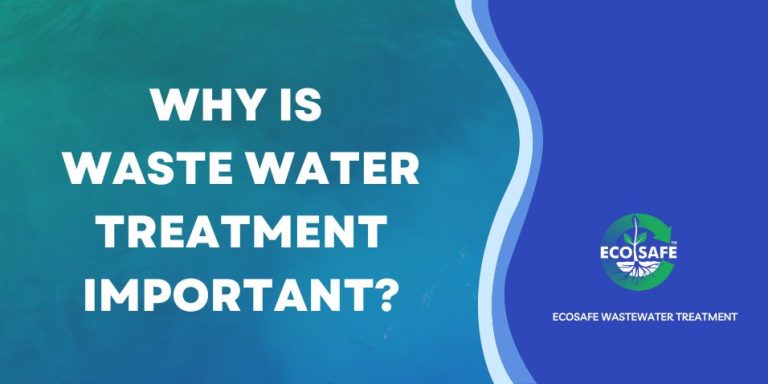9 Easy Facts About Reclaim Waste Explained
9 Easy Facts About Reclaim Waste Explained
Blog Article
Reclaim Waste Can Be Fun For Anyone
Table of ContentsReclaim Waste Fundamentals ExplainedReclaim Waste Can Be Fun For EveryoneThe Best Strategy To Use For Reclaim WasteSome Known Incorrect Statements About Reclaim Waste See This Report about Reclaim Waste
Explore the kinds, events, and forms of fluid waste. Domestic sewage waste describes the waste and items from a domestic sewage-disposal tank. This type of waste is created by human beings in residences, schools, and other structures. This only includes septic systems that have a drainpipe field. The correct management and disposal of domestic sewage waste require liquid waste to be transferred to a sewer treatment plant where the appropriate techniques and tools are put on cleanse and dispose of waste.
Business waste often consists of prospective risks, such as combustible materials or a blend of liquid and strong waste products, and calls for a much more sophisticated and in-depth disposal procedure. The disposal of business waste typically includes the filtering of waste before transportation to guarantee safe and proper disposal. Hazardous waste is produced from by-products and overflow of industrial processes and manufacturing.
This type of waste can not use the same sewer management transport or procedures as septic or commercial liquids. The industrial waste management process requires the assessment and testing of fluid waste prior to it goes through the disposal procedure (liquid waste removal). Overflow waste is the fluid waste that originates from overflow and excess stormwater in highly populated areas or cities
Drainage waste can trigger contamination and flooding if not taken care of correctly. Discover more concerning sewage system cleaning and waste monitoring. Making sure proper waste monitoring can avoid calamities and reduce environmental damage. Both individuals in household settings and specialists in business or production markets can profit from recognizing the processes and regulations of fluid waste monitoring.
Excitement About Reclaim Waste
Get in touch with PROS Solutions today to learn more about our waste monitoring and disposal services and the appropriate methods to care for the fluid waste you produce.
(https://www.awwwards.com/reclaimwaste1/)Do you recognize what happens to your water when you pull the plug, flush the commode or drain pipes the washing device? No? Well, it's worth knowing. This so-called 'wastewater' is not only an essential resource but, after therapy, will certainly be launched to our land, rivers or the sea. Utilized water from bathrooms, showers, bathrooms, cooking area sinks, laundries and commercial procedures is known as wastewater.

water made use of to cool down machinery or tidy plant and devices). Stormwater, a kind of wastewater, is runoff that flows from agricultural and city locations such as roofing systems, parks, yards, roads, paths and gutters into stormwater drains, after rainfall. Stormwater moves untreated directly to regional creeks or rivers, ultimately getting to the ocean.
The Definitive Guide to Reclaim Waste
In Queensland, a lot of wastewater is treated at sewer treatment plants. Wastewater is transferred from domestic or industrial websites with a system of sewers and pump stations, called sewage reticulation, to a sewage treatment plant. City governments build, preserve and operate most sewage treatment plants. Operators are accredited under the Environmental Security Act 1994 to discharge cured wastewater at an acceptable ecological requirement into rivers.
The Department of Natural Resources recommends city governments concerning managing, operating and keeping sewage systems and treatment plants. In unsewered areas, city governments might require homeowners to mount specific or family sewer treatment systems to deal with residential wastewater from toilets, cooking areas, bathrooms and laundries. The Department of Natural Resources authorizes making use of home systems when they are confirmed to be reliable.
The majority of stormwater receives no therapy. In some brand-new communities, therapy of some stormwater to remove clutter, sand and gravel has started making use of gross pollutant traps. Wastewater therapy happens in four stages: Removes solid issue. Bigger solids, such as plastics and other things wrongly discharged to drains, are gotten rid of when wastewater is gone through screens.
Makes use of small living microorganisms understands as micro-organisms to break down and eliminate remaining dissolved wastes and fine bits. Micro-organisms and wastes are integrated in the sludge.
Reclaim Waste Things To Know Before You Buy
Nutrient elimination is not offered at all sewage treatment plants due to the fact that it requires expensive specialised devices. Clear liquid effluent created after therapy may still consist of disease-causing micro-organisms - industrial wastewater treatment.

Many wastewater moves into the sewerage system. Under the Act, regional governments carry out approvals and licences for ecologically appropriate tasks (ERAs) entailing wastewater launches that might have a local effect.
Examine This Report on Reclaim Waste
Otherwise, samples are taken for laboratory analysis. Commonly several examinations are required to establish the levels of each of the various pollutants such as oils, hefty steels and chemicals in water. Monitoring supplies valid information concerning water high quality and can confirm that licence conditions are being met. The information acquired with tracking gives the basis for making view it now water quality decisions.
Report this page